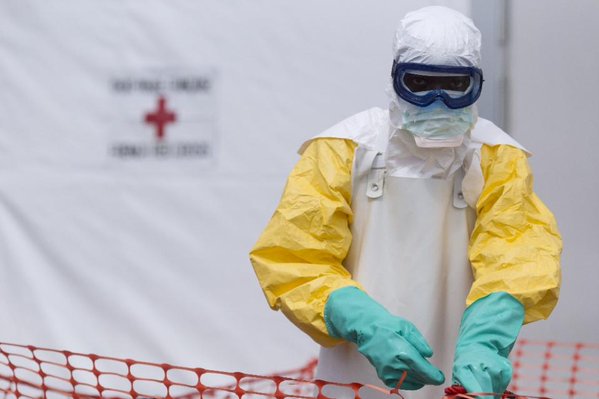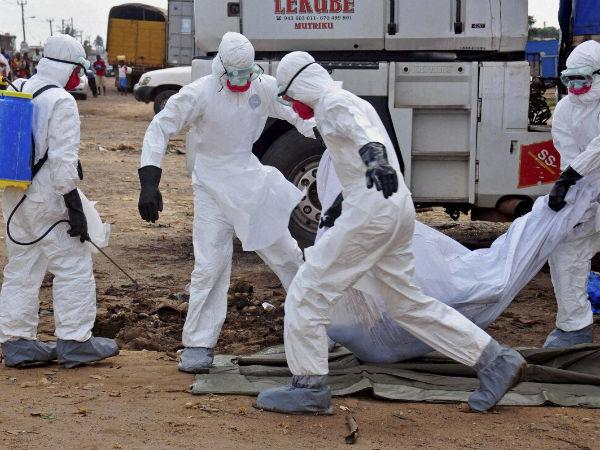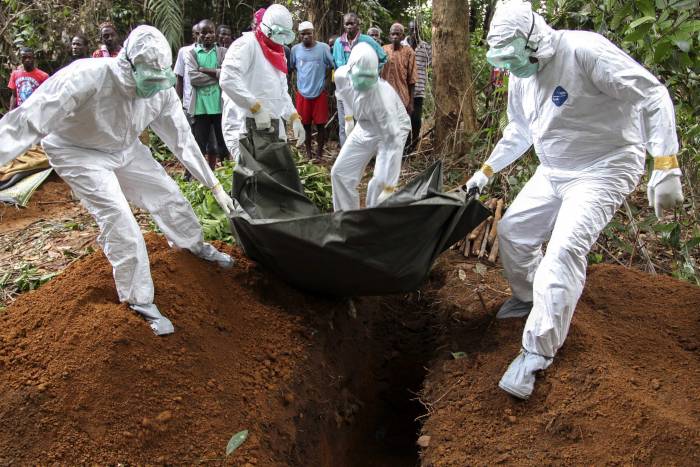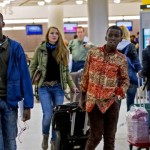
source
The World Health Organization declared that the West African Ebola outbreak was over. It began in 2013, starting in Guinea then spreading to Liberia, Sierra Leone, and seven other nations. For the first time since the epidemic began, the three countries that were hit the hardest by it have all reported zero cases for at least 42 days.
A long two years
It is believed that the epidemic began in a rural area of south Guinea. Researchers working for The New England Journal of Medicine think that the first person infected was a two-year-old boy named Emile Ouamouno from Gueckedou. The disease spreads via direct contact with bodily fluids of infected people, both dead and alive. From that point, the disease kept spreading throughout the country and the region. Since there is no vaccine for the disease and the experimental treatments were limited, it quickly made its way through the highly populated and rural communities with poor infrastructure and limited health care. Health experts in a panel brought together by the Harvard Global Health Institute and the London School of Hygiene & Tropical Medicine criticized the WHO for a delayed response. Director Ashish K. Jha said that the cost of the delay was enormous. The exact cost: over 11,200 people lost their lives. Another 17,000 survived and are still living with side effects and about 23,000 children lost at least one parent or guardian.

{adinserter CNP5}
A critical time
For a country to be considered Ebola-free, two 21 day incubation periods must pass. Guinea was found free of the disease at the end of December; it is currently in the 90-day time period of extra surveillance by the WHO. This is to ensure that new cases are discovered quickly and are swiftly contained. The head of Ebola response for the WHO, Dr. Bruce Aylward, said:
“The coming months will be absolutely critical.”
Flare-ups of the disease can occur and cause the disease to spread once again if not dealt with. Sierra Leone is already investigating a new possible case in the Tonkolili district. The virus can persist in survivors. In males, the virus can remain present in their semen for a year; in some rare cases, they can pass it on to their partners. Within the last nine months, four flare-ups were reported in Liberia and three in Guinea and Sierra Leone; the WHO is anticipating more. Follay Gallah, an ambulance driver and survivor warned that:
“We could have a recurrence if we don’t do those things that we need to do.”

Liberia is being especially cautious
Liberia was the final country to be cleared, but the optimism is cautious in the country – this is not the first time Liberia has been declared free of the disease. When the WHO first cleared the nation Ebola-free in May, four flare ups occurred and caused two deaths. It was declared free of the disease again in September, but then three new cases came up. Scientists were confused by the last flare ups; they were not sure where they were originating from.

SEE ALSO: Health Experts Criticize How The World Health Organization Handled The Ebola Outbreak.







